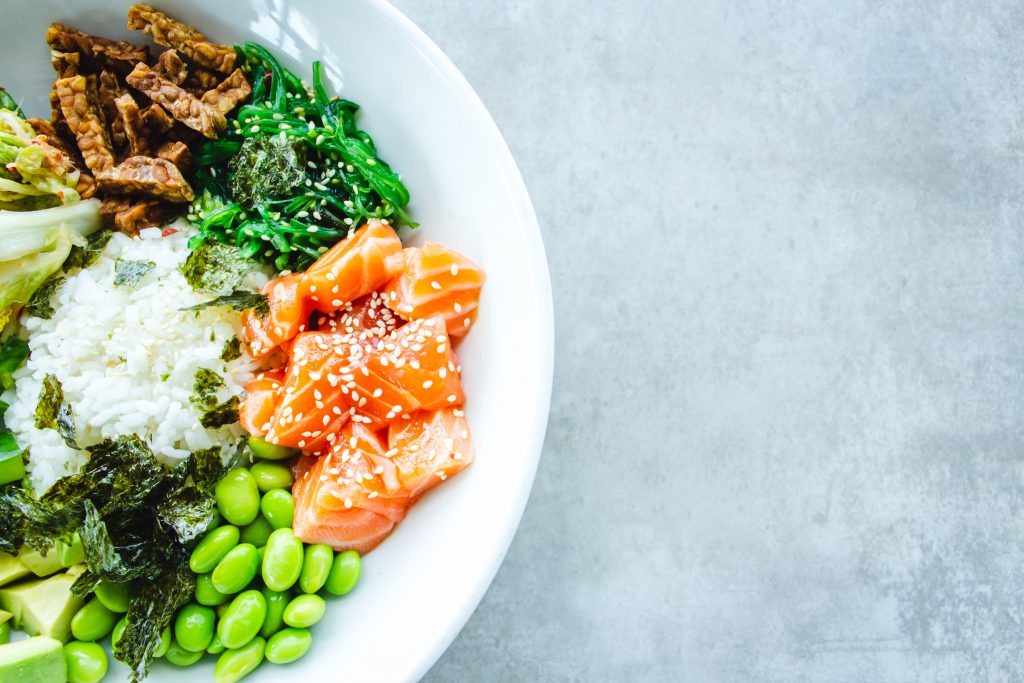Recovery is a long road full of challenges. Initially, someone in treatment may undergo detox, withdrawal, and medication adjustments to heal their body. In addiction treatment, they may need to learn how to navigate new routines and address imbalances in the body. After all that, someone in recovery will still need to make efforts to maintain long-term sobriety. Research shows there is one form of medicine often overlooked for patients on this journey: food.
The body takes on a lot of damage during substance abuse. A food as medicine approach can help patients better fuel their bodies and support a holistic recovery. With the right foods, patients can dress any imbalances from addiction and be more prepared to thrive as they adjust to sobriety.
It’s essential not just to consider what patients are eating but also when they’re eating. Three meals a day with solid portions made from whole foods rich with nutrients plenty of food groups provides three opportunities to help patients heal while maintaining a regular schedule.
Maintaining a Balanced Diet
The human body needs a variety of nutrients to function properly. Substance and alcohol use can severely disrupt the body’s ability to absorb nutrients. Therefore, it is essential to restore these nutrient levels during recovery. Treatment plans can do this by treating food as medicine.
The best way to promote a healthy, healing lifestyle through food is to maintain a balanced diet. A variety of healthy foods help cleanse the body. A healthy diet should include a variety of foods that make you feel great and can include:
- Fruits
- Vegetables
- Whole grains
- High-quality dairy
- Protein, including fish, eggs, poultry, etc.
- Nuts and seeds
- Healthy fats from avocados and olives
A variety of foods is essential for a healthy balanced diet. It is better to focus on whole foods made with unprocessed ingredients, like the options listed above, for the best possible nutrition.
When shopping for fruits and vegetables, opt for fresh produce instead of canned items. Even minimally processed foods (boxed, canned, or otherwise packaged) contain higher sodium levels to preserve the food. It is best to eat foods “straight from the ground” when you can.
Recovery Superfoods
Whole foods contribute to a healthy diet. However, some specific foods are more nutrient-dense and have specific vitamins and minerals that can be beneficial for recovery. Using a food as medicine approach provides the body with vitamins and minerals that promote physical and mental healing. Some of the best foods for brain health are considered recovery superfoods.
Tyrosine
Tyrosine is an amino acid that can be found in some whole foods. It is crucial for dopamine production, making it one of the best foods for brain health.
Dopamine stimulates the part of the brain that makes us feel rewarded and happy. This is why drugs and alcohol can be so addictive: they provide a dopamine rush.
In recovery, dopamine levels are typically low. This is because the brain is expecting a hit of dopamine from drugs or alcohol. Increasing tyrosine consumption is a great way to foster healthy dopamine levels.
Some brain-healthy foods that contain tyrosine include:
- Soybean products
- Dairy products like milk, cheese, yogurt, and cottage cheese
- Whole grains
- Lean meats like chicken, turkey, and fish
- Bananas
- Avocados
These foods contain an abundance of tyrosine. By incorporating these foods into your diet, you can promote feelings of happiness and positivity.
Antioxidants
Antioxidants are potent cleansing agents. They remove harmful materials in the body to prevent cell damage. After substance abuse, your body has a lot of damage to repair. Antioxidants are healthy foods to cleanse your body.
Some foods that contain antioxidants include:
- Berries
- Pecans
- Onions
- Dark chocolate
Eating these foods will support your immune system and detox process. These foods are also healthy snack options between meals.
Vegetables
Vegetables are a significant part of a balanced diet. Vegetables are a great source of various vitamins and minerals that cannot be found in other foods. Some leafy green vegetables also provide high levels of antioxidants. In general, vegetables are brain-healthy foods.
Often, substance abuse strips the body of essential nutrients. It can be hard to eat enough vegetables during active addiction or alcoholism. However, you can always add more vegetables to your diet during recovery.
It may be tough to figure out how to incorporate plenty of vegetables into your diet. If you don’t like the taste, try blending vegetables into a fruit smoothie. You likely won’t taste the vegetables as the fruit sugar will overpower them.
You can also sauté leafy greens like kale and spinach with hot meals. These greens cook down and take on the other flavors of a dish, so you will not taste them as you eat.
You can also incorporate green drinks loaded with vegetables and sweetened with fruit. Try not to take in too much added sugar — a lot of “healthier options” will try to alter the flavor of whole foods by adding sugars and syrups during processing. In the long run, the benefit of the nutrients from the vegetables will outweigh the sugar content.
Follow an Eating Schedule
During addiction treatment, your appetite will fluctuate a lot, and it can be challenging to regulate how much you are eating. Many patients in recovery will overeat or undereat as they try to adjust, which is entirely understandable. After substance abuse, the body has a hard time figuring out hunger and satiation.
One way to combat food imbalances is to follow a strict eating schedule. A food as medicine template paired with a regular eating schedule can support clients who need to take medication in treatment. When you follow a routine, you are better equipped to get into the groove of recovery, knowing what to expect each day and feeling better prepared to handle the unexpected. Many recovery programs offer nutrition counseling and dieticians on hand to help you develop a healthy eating schedule. This can be an excellent opportunity to find out what foods work best for you and establish a regular eating schedule.
Everyone’s nutritional needs are different. When using a food as medicine approach, make sure to consult the professionals in your recovery program. They can help you determine a proper schedule for meals, the right quantities of food to eat, and what foods feel best for your body.
Listen to Your Body
After extended substance use, your body might need some time to regulate itself again. In the meantime, you should listen to what your body needs. Balance is the key to following a healthy diet, and listening to your body’s wisdom can help further your recovery efforts.
Food cravings are not always negative, and they are a natural part of recovery. Just be mindful and try not to sacrifice nutrition for treats too often. Yes, you can achieve good nutrition without depriving yourself completely of the foods you love, just make sure to prioritize nutrient-dense foods the majority of the time.
Food As Medicine in Recovery
Do you need to cut out all junk or “cheat” foods in recovery? The short answer is no. Restricting your diet to the point of deprivation can cause an unhealthy relationship with food. Ultimately, you need to give yourself grace and try to frame a food as medicine approach as a recovery tool. You are already going through a lot — you don’t have to add more to your plate (pun intended) by stressing about food.
Healthy foods can be deeply healing for your body. You have to eat to survive, so it is best to incorporate healthful habits during recovery. Just like your recovery, eating well is about balance.
With patience and determination, you can live a healthy lifestyle. If you are ready to pursue treatment and you’re interested in incorporating more holistic healing practices in recovery, the caring and compassionate staff at All Points North Lodge can help. We offer a range of healing modalities, including evidence-based practices, individual therapy, group therapy, cutting-edge technologies, and comprehensive support for anyone struggling with addiction, mental health issues, and trauma. Get started with your healing journey today and contact us by phone at 855-510-4585 or via to get started.





